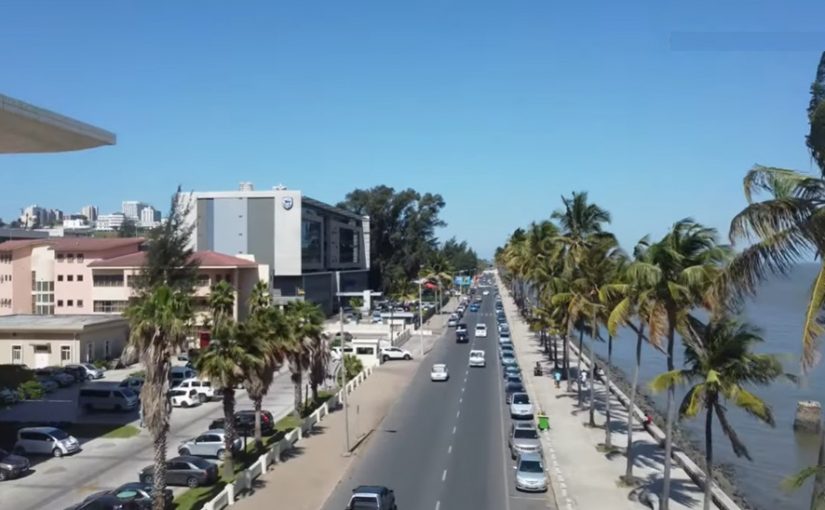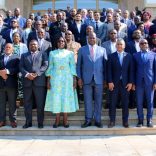Amade Camal, a key voice in Mozambique's business and politics, passes away at 71
Mozambique’s private sector records strongest increase in activity for two years -PMI

FILE - For illustration purposes only. [File photo: O dia a dia de um africano]
Key findings
- Output recovers amid uplift in sales
- Selling charges unchanged as cost pressures remain soft
- Staffing numbers rise, but purchases fall
Business conditions in Mozambique improved for the first time in three months during July, as activity expanded strongly in response to greater levels of new business. Notably, the rate of activity growth was the sharpest seen in two years. Employment also rose, marking the second consecutive monthly uplift, although purchases and inventories of inputs both decreased. Selling charges were unchanged following back-to-back rises, as firms aimed to keep prices steady amid a benign cost environment.
The headline figure derived from the survey is the Purchasing Managers’ IndexTM (PMI®). Readings above 50.0 signal an improvement in business conditions on the previous month, while readings below 50.0 show a deterioration.
In July, the headline PMI rose to 50.7, up from 49.1 in June, registering above the 50.0 neutral threshold for the first time since April. The index signalled a marginal improvement in the health of the private sector economy.
Firms in Mozambique enjoyed an increase in sales at the start of the third quarter, as demand conditions picked up following softness in June. The upturn in new business was the sharpest observed since September last year, with panel members relating this to larger orders, new clients and improved supply conditions.
Consequently, private sector firms expanded their output over the course of July. The rate of growth was solid and the most pronounced in exactly two years. Construction led the upturn, as new projects and improved productivity were highlighted by respondents. Output rose in all other sectors, except for wholesale & retail where total activity was stable.
Higher sales led to an increase in employment across Mozambique’s private sector in July. The pace of job creation, which was unchanged from June, was only slight and slower than the survey trend. A rise in workforce capacity helped firms to reduce their backlogs to the greatest extent in almost two years.
In contrast to rising employment, input purchases decreased for the third month in succession, leading to a reduction in stock volumes. That said, rates of decline eased in both cases. With input demand limited, suppliers were once again able to deliver items in a timelier manner. Delivery times shortened for the fifth month running.
Input costs crept up for Mozambican private sector companies in July, driven by increases in both purchase prices and wages. However, the overall pace of input price inflation remained very mild, despite ticking up to a three-month high. Anecdotal evidence revealed that some firms faced higher material prices and greater payments linked to new customer requirements, although price pressures were generally soft due to lower purchasing. Wage costs largely rose due to increased hiring, according to panel member reports.
Amid the benign cost environment, private sector companies held their own charges steady during July. This ended a prior two-month run of selling price increases. Some firms reportedly chose to offer discounts in order to stimulate sales.
Business activity expectations dipped in July but remained positive, with around 38% of the survey panel expecting output to grow over the next 12 months. Reasons for a positive outlook included expanding operations, reaching new markets, offering additional services and increasing employment.
Comment
Fáusio Mussá, Chief Economist – Mozambique at Standard Bank commented:
“The Standard Bank Mozambique PMI rose to 50.7 (seasonally adjusted) in July, from 49.1 in June, which suggests a recovery in economic activity at the beginning of the third quarter. In July, there were month-on-month (m/m) expansions in most of the PMI sub-indices, including output, new orders, employment and supplier delivery times. However, we note a decline in both purchases and inventories, which may reflect subdued foreign exchange (FX) supply impacting acquisitions.
“PMI outcomes above the 50pt benchmark mean a monthon-month expansion in private sector economy. Even though we retain our views of a slow GDP growth recovery from the post-election fallout, on recurrent fiscal and FX liquidity pressures, the PMI July data shows output expanding at the strongest pace in two years and across the sectors of economic activity, except for wholesale and retail trade.
“Business sentiment continued to improve, with the PMI future business expectations sub-index remaining well above the 50pt benchmark, which may reflect expectations of progress on liquified natural gas projects (LNG), which should boost output.
“The Banco de Moçambique cut policy rates as expected in July, with another 75 basis points cut in the MIMO interest rate to 10.25%. This reflects cumulative cuts of 700 basis points since the beginning of 2024. Notably, the prime lending interest rate, which fell by a cumulative 690 basis points since the beginning of 2024 to the current level of 17.2%, will decline further, which goes a long way in helping ease borrowing costs.”












Leave a Reply
Be the First to Comment!
You must be logged in to post a comment.
You must be logged in to post a comment.